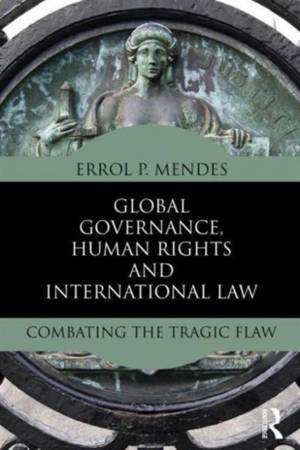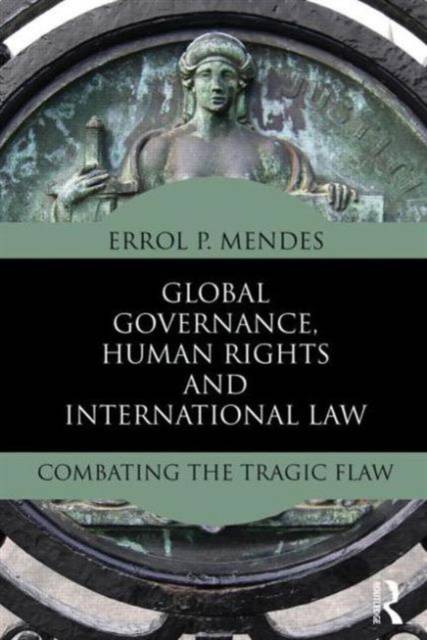
- Afhalen na 1 uur in een winkel met voorraad
- Gratis thuislevering in België
- Ruim aanbod met 7 miljoen producten
- Afhalen na 1 uur in een winkel met voorraad
- Gratis thuislevering in België
- Ruim aanbod met 7 miljoen producten
Omschrijving
This book offers a stimulating introduction to the links between areas of global governance, human rights global economy and international law. By drawing on a range of diverse subject areas, Errol P. Mendes argues that the foundations of global governance, human rights and international law are undermined by a conflict or 'tragic flaw', where insistence on absolute conceptions of state sovereignty are pitted against universally accepted principles of justice and human rights resulting in destructive self-interest for both the state and the global community. The book explores how human rights and international law are applied in some of the critical institutions of global governance and in the operations of the global private sector, and how States, institutions and global civil society struggle to fight this 'tragic flaw'.
The book is brought up to date by considering developments in the role of the IMF, the World Bank, bilateral investment treaties; the likely failure of the Doha round of WTO negotiations; the legacy of the 2008 financial crisis; and the role of the International Criminal Court and the evolving Responsibility to Protect doctrine in international peace and security crises in the Middle East, Central and West Africa among other regions of the world. With its intensely interdisciplinary approach, this book motivates new thinking in the realm of global governance and international law, and promotes the development of new strategies for negotiating between conflicting leadership and organisational values within global institutions.
The book will be of great interest and use to students and researchers of public international law, international relations and political science, business and human rights, global governance and international trade and economic law.
Specificaties
Betrokkenen
- Auteur(s):
- Uitgeverij:
Inhoud
- Aantal bladzijden:
- 272
- Taal:
- Engels
- Reeks:
Eigenschappen
- Productcode (EAN):
- 9780415534574
- Verschijningsdatum:
- 11/02/2014
- Uitvoering:
- Paperback
- Formaat:
- Trade paperback (VS)
- Afmetingen:
- 150 mm x 226 mm
- Gewicht:
- 362 g

Alleen bij Standaard Boekhandel
Beoordelingen
We publiceren alleen reviews die voldoen aan de voorwaarden voor reviews. Bekijk onze voorwaarden voor reviews.












